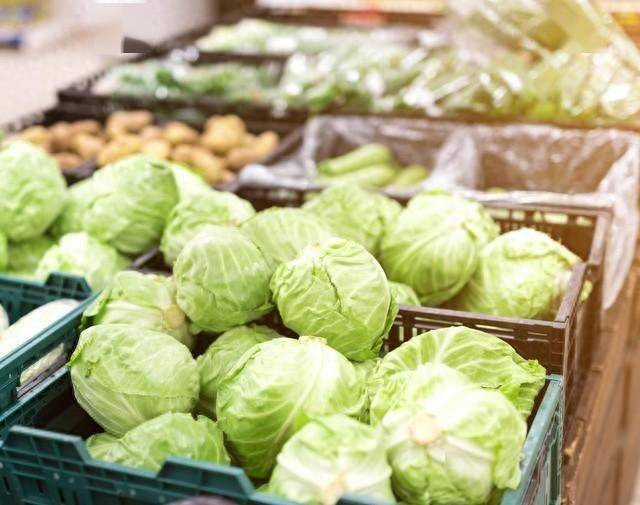Have you ever struggled with the pain of gout? Gout, known as the “rich man’s disease,” is not only related to its causes and dietary habits but also because it can make you experience an unparalleled pain. Many people feel intense joint pain, especially in the toes, knees, and fingers, during gout attacks. The root cause of gout lies in elevated levels of uric acid in the body, leading to the formation of uric acid crystals deposited in the joints, triggering inflammation.
In life, many people will tell you that eating certain foods can help prevent or alleviate gout. For example, some may recommend cabbage, believing it can act as a “purifier” for gout. So, does cabbage really have such magical effects? Besides cabbage, what other foods can help lower uric acid levels and prevent gout?
This article will delve into the role of cabbage in gout prevention and recommend four foods that help lower uric acid levels, making it easier for you to prevent gout in your daily diet.
Cabbage: A “natural remedy” for gout?
Cabbage, also known as cabbage, is a common vegetable. It is rich in vitamin C, fiber, and various minerals. Some believe that cabbage can help prevent gout by promoting uric acid excretion and reducing uric acid production.
Nutritional components of cabbage
Cabbage is rich in vitamin C, which is thought to help lower uric acid levels. Vitamin C can reduce high uric acid levels by enhancing uric acid excretion. In addition, the fiber in cabbage helps promote intestinal motility, reducing the accumulation of waste in the body and aiding in uric acid excretion.
Anti-inflammatory effects of cabbage
Studies have shown that some antioxidants in cabbage have anti-inflammatory effects, which can alleviate joint inflammation caused by gout. Although the anti-inflammatory effects of cabbage are relatively mild, it can still be part of a gout patient’s diet to help alleviate symptoms.
Actual effects of cabbage
Although cabbage is nutritionally valuable, its individual impact on gout is limited. As a supplementary food, it can help regulate uric acid levels but should not be seen as the primary treatment.
Eat these 4 items more, lower uric acid more effectively
In addition to cabbage, there are other foods proven to effectively lower uric acid levels and help prevent gout. The following four foods are recommended “uric acid-lowering stars” that can help you better control uric acid levels and prevent gout.
1. Cherries: A natural “savior” for uric acid
Cherries are widely believed to be effective foods for lowering uric acid levels. Research has shown that cherries are rich in anthocyanins, a natural compound with potent antioxidant properties.
Lowering uric acid levels
Anthocyanins can help reduce the production of uric acid in the body and promote its excretion. Eating cherries several times a week can significantly lower uric acid levels and reduce the frequency of gout attacks.
Reducing inflammation
The anti-inflammatory properties of cherries also help alleviate joint inflammation during gout attacks, providing relief from pain.
2. Turmeric: A natural anti-inflammatory “tool”
Turmeric is a common spice containing curcumin, its main active compound, which has potent anti-inflammatory and antioxidant properties.
Alleviating joint inflammation
Curcumin can inhibit enzymes that cause inflammation, reducing joint swelling and pain, especially beneficial for gout patients.
Improving uric acid metabolism
Research has also found that curcumin can help regulate uric acid metabolism, aiding in controlling uric acid levels in the body. Adding some turmeric powder to your daily diet can bring additional health benefits.
3. Oats: A healthy source of dietary fiber
Oats are whole-grain foods rich in dietary fiber and are very helpful in controlling uric acid levels.
Promoting uric acid excretion
The soluble fiber in oats helps promote the excretion of uric acid. Regular consumption of oats helps maintain a balance of uric acid in the body.
Keeping the digestive system healthy
Dietary fiber can also improve the function of the digestive system, helping to eliminate waste and toxins from the body, indirectly aiding in uric acid control.
4. Watermelon: Cool and uric acid-reducing
Watermelon is a refreshing fruit rich in water and potassium, helping to lower uric acid levels.
Promoting urine excretion
The high water content in watermelon helps increase urine excretion, aiding in the elimination of uric acid.
Low purine content
Watermelon is a low-purine food that does not increase the burden of uric acid in the body, making it a good choice for gout patients.
Managing gout requires scientific dietary and lifestyle adjustments. While cabbage helps to some extent in lowering uric acid, relying solely on it is not enough. By increasing the intake of cherries, turmeric, oats, and watermelon, you can more effectively control uric acid levels and reduce the occurrence of gout. In addition to diet, maintaining good habits, adequate water intake, and regular exercise are also important measures for controlling gout.


